Better Than Ezra: 20 Years Strong
The three-piece outfit talks of their longevity, memorable live show and most recent album, Paper Empire.
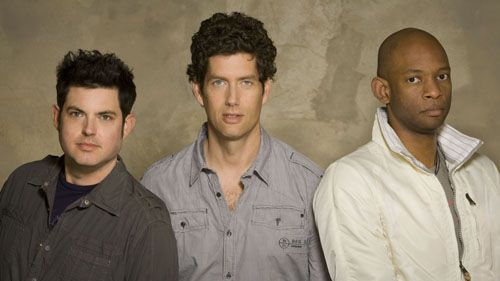
No strangers to the music scene, Better Than Ezra have been performing and recording for the past 20 years. While the band admits it's their engaging live show more than their record sales that have helped their longevity, latest release, Paper Empire, may change that. Their sixth studio album is solid with moving singles, "Just One Day" and "Absolutely Still," bound for radio airplay.
In perhaps the busiest (and hottest) Starbucks in New York City, I met up with the men behind Better Than Ezra—singer-songwriter Kevin Griffin, bassist Tom Drummond and newest member, drummer Michael Jerome. BTE talked to me about their latest release, communicating with fans, and their live show:
"We really enjoy performing live and you can't fake that sort of thing. We just have a good time; we try to mix it up every night," Drummond said. "I've been told by fans that a lot of them come to the show for the in-between song banter as much as the actual songs. We truly enjoy playing every night and I think that's a big reason why we're still here."
How is Paper Empire different from your previous albums?
Kevin: I think every Better Than Ezra album is different because we're a band that has always put our influences into our music. Also, a lot of it was done long distance. I'd have a part and send it to Tom, he'd put bass on it and Michael would come in and play drums. It was really using the Interweb, the Internet machine to do a lot of the album. New influences, different recording process and this was the first time that we had a lot of different players come and play. On a couple of songs, I just told some of my favorite guitarists that I work with what I wanted. So, I got to sit back and produce a song and not have to beat myself up playing a part that a friend of mine could play a lot better and a lot quicker.
You've written songs for many artists including Howie Day, David Cook, Blondie. How do you differentiate writing a song for another artist vs. Better Than Ezra? Do you ever wish you kept a song for yourself?
Kevin: That's interesting. Sometimes it's easy writing a David Cook song. I know that a song like "Avalanche" is never going to be on a Better Than Ezra album. It's too David Cook. There's a song I wrote with Joshua Radin for his last album, (also featured in movie "Adam") that just wasn't going to be a Better Than Ezra song. But then there are the ones like, maybe "Collide" for Howie Day, which could have been a Better Than Ezra song, but at the time we were unsigned. We didn't have any money to put it out and I just think, "Here's this 22-year-old kid whose got Epic Records behind him, he needs this ballad. I know they're going to put all that machinery and pump it behind him." It takes a lot of belief to get a ballad to happen.
Most of the time, it's pretty clear cut, but then there are some songs on this new album, like "Just One Day," the new single that I wrote with Jeremy Lister. I called him up and said, "Hey, we both know that Warner Brothers did a terrible job with your EP. I'd love if Better Than Ezra could do a version of it, change it up and hopefully give it another chance to give it the life we think it should." That's happened with a few different co-writers.
I wanted to ask you about "Just One Day." It's my favorite song on the album. What's the inspiration behind it?
Kevin: It's in part, just about losing people in your life. I kept coming back to our original guitarist, Joel Rundell, who committed suicide. It was almost 20 years ago. I had never written a song about it and as I was working on the lyrics for "Just One Day, I kept thinking about Joel and other people. As you get older you start to lose different people in your life.
Stay In The Know
Get exclusive access to fashion and beauty trends, hot-off-the-press celebrity news, and more.
It's basically about all the unresolved things that you have. It's saying, if you had one day to spend with them, letting go of the resentment that maybe you have about the way you acted in a relationship or the way you think they did. More, it's a celebration of a fantasy that you have a moment to share with that person you loved. What I think makes it different than other songs that approach the subject is that it's not just about the good; it's about the bad too. Too many people let resentment and past things really hound them. Carrie Fischer said it best about resentment, Resentment is like drinking poison and waiting for the other person to die." If you had one day to get rid of that, what would you do?
Do you ever hold back when songwriting? Are you ever afraid someone in the audience will hear and make the connection that the song is about them?
Kevin: I guess I'd only be concerned if that song was about something really bad that someone did. But more times than not, I do have songs that people know are about them on every album—girlfriends usually. A song called, "Cry In the Sun" was about this great summer romance as a counselor at a camp in North Carolina. That was on our first album. "Under You" was about moving to LA with another girlfriend. It was about being broke and eating Ramen noodles and barely being able to survive. And those people know that. More times than not though, people make a song into whatever they think it is anyway. I've had people very happy or very miffed that they think a certain song is about them and I'm like, "It has nothing to do with you.
Have you noticed a change in your fans over the years?
Tom: I think certainly, we've been a band that has been able to have our fans grow with us. Every time we put out a new record, I feel like we get some new fans that come along too. In fact, some of the people are starting to bring their kids. That's how long we've been around I guess. It's really cool because if the parents are that into the band and they start bringing their young kids to the show, they truly love the band. As far as teens go, I think every time you have a new single, that's who you're hoping to get. They're the obvious record downloading crowd so that's who you're shooting for. But also, you can't alienate the crowd you've brought with you for 20 years. You have to be true to them too, so that's what we try to do.
Kevin: We have a lot of new fans and that's refreshing, but I'd say the meat of it is our fans that were fans in the 90s when we started off. These people really support us and feel like we're part of their lives and come to us and say, "Man, when you play that song it reminds me of me and my girlfriend. We were taking a road trip across the country. I don't want to bug you about that." I'm like, "You are not bugging me when you say something like that. That's the ultimate goal for a musician: to have their song be a part of someone else's life.
Social media has a huge role on getting bands noticed today. You use Twitter to hide tickets to the show for fans. That wasn't around when you first started.
Tom: The whole industry has changed, I think four or five times since we've been a band. Bands that have the ability to exist for longer than five years are the bands that are business savvy and hip to the new ways. You have to be able to evolve or you dissolve. You have to be hip to MySpace and Twitter and Snagglepus.com—that's the one we're gonna start. We pride ourselves on the fact that not that many bands can stay around as long as we have. It takes consistent songwriting. It takes having an exciting, fun, live show, which I think is one of the key elements that are missing in a lot of current bands.
What's going through your head while you're performing?
Kevin: Sometimes you're onstage and you're just playing and in your mind [you're thinking], "Did I put that dark shirt in with the whites when I left the house? 'Cause my clothes are screwed if I did." And then Tom's looking at me playing because I missed the lyric of the song. More times than not, you're paying attention.
Michael: Being the new guy, you take in a lot of new information and try to realize what has been done the past 15 years and you try to emit that. The songs, the performance. You're trying to appease fans that have grown to love what they've been watching for the last 15 years and what they've seen and what they've listened to from recordings. I'm conscious of that. I'm a fan myself. So, if I fall in love with a band and their music, I don't want it to change usually. For me, playing live is very enjoyable, but it's also a conscious effort to stay present when I'm playing. I tend to watch the show myself. I start having fun and I forget that I'm actually helping to make the show be what it is.
You've survived the industry for 20 years. What is your advice to aspiring musicians who look up to you and want longevity like Better Than Ezra?
Tom: The technology that exists today is so different than when we started. There are so many great ways to write and produce your own music and get it out there for people to hear. Now, you can do it yourself. You just can't be lazy. Teach yourself about the music business and if you're behind what you do, you can make it happen.
Kevin: When we started, unless you were in a music center, you really felt like you were so dislocated from what was going on. With the accessibility and the immediacy of the Internet, it's all at your fingertips. It's about how savvy you want to be, how hard you want to work. At the end of the day, it's not only the person who is talented; it's equal parts talent and then hard work, great work ethic. There are so many good bands and musicians who were way more talented than us; they just didn't have everything it takes. The get up and go, the drive, the savvy—you have to have all of that. Don't think it's just about chasing some muse through a meadow. It's about capturing that muse, destroying anything that was good about it to begin with, selling it out, commercializing it and packaging it.
Annie Reuter is a freelance writer and music blogger who covers concerts and music festivals around the country. In constant pursuit of the next show to attend and band to interview, Annie keeps up her own music blog, You Sing, I Write, where you can read more on the latest up-and-coming bands.
-
 Prince George Had a Six-Word Message for Prince William to Pass Along to a TV Star During a Recent Royal Engagement
Prince George Had a Six-Word Message for Prince William to Pass Along to a TV Star During a Recent Royal EngagementThe 11-year-old called the star of a popular U.K. series out.
By Kayleigh Roberts Published
-
 Chase Sui Wonders Channels ‘90s Nostalgia at 'The Studio' Premiere
Chase Sui Wonders Channels ‘90s Nostalgia at 'The Studio' PremiereAt 'The Studio' premiere, she channeled Gwyneth Paltrow’s '90s-era style with an archival Prada print once worn by the star.
By Lauren Tappan Published
-
 Let Krysta Rodriguez Be Your Star
Let Krysta Rodriguez Be Your StarAs the Broadway adaptation of the cult TV show 'Smash' opens, the only returning cast member delves into the new show.
By Leigh Scheps Published
-
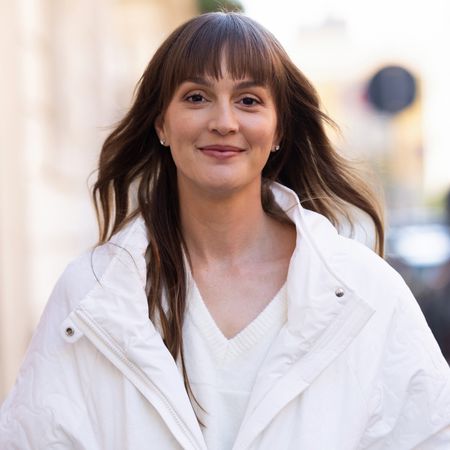 Leighton Meester's Music Climbs iTunes Chart After She Loses Home She Shared With Adam Brody in California Wildfires
Leighton Meester's Music Climbs iTunes Chart After She Loses Home She Shared With Adam Brody in California WildfiresThe 'Gossip Girl' star is following in Heidi Montag's footsteps.
By Amy Mackelden Published
-
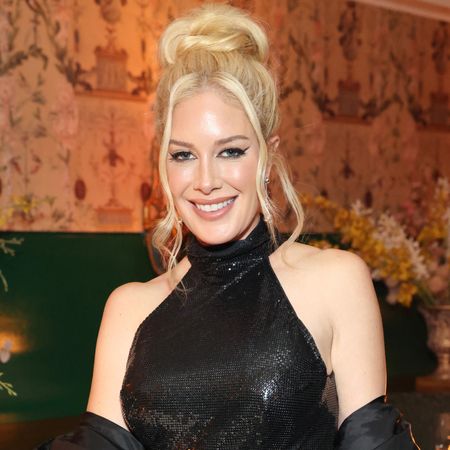 Why Heidi Montag's 2010 Album 'Superficial' Is Having a Celeb-Fueled Revival in 2025
Why Heidi Montag's 2010 Album 'Superficial' Is Having a Celeb-Fueled Revival in 2025Everyone from Emily Ratajkowski to Paris Hilton has helped the underrated record top the iTunes chart.
By Amy Mackelden Published
-
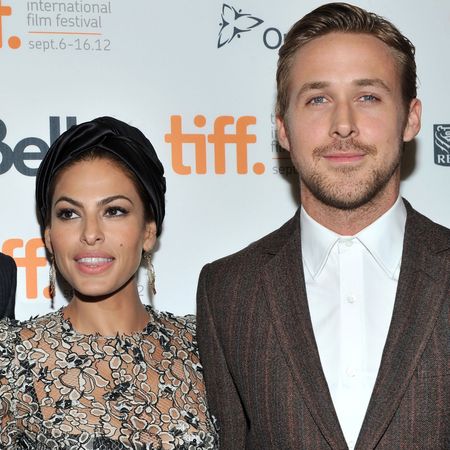 Eva Mendes and Ryan Gosling Introduce the "Newest Member" of Their Family
Eva Mendes and Ryan Gosling Introduce the "Newest Member" of Their Family"I'm crazy about her and excited to share life."
By Amy Mackelden Published
-
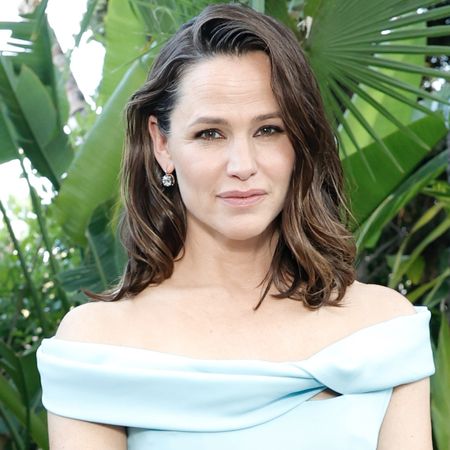 Jennifer Garner Is Reportedly Ready to Cut Ties With Jennifer Lopez, Unless Their Kids Are Involved
Jennifer Garner Is Reportedly Ready to Cut Ties With Jennifer Lopez, Unless Their Kids Are Involved"Her friends feel she shouldn't have allowed herself to get so involved."
By Amy Mackelden Published
-
 Rihanna Hints She's Retiring From Music and Moving on to More "Authentic" Projects
Rihanna Hints She's Retiring From Music and Moving on to More "Authentic" Projects"I always say music was the thing that got the attention, but God had other plans for me."
By Amy Mackelden Published
-
 Hailey Bieber Shares Her First Photo of Baby Son Jack Blues Since Giving Birth—See the Sweet Shot
Hailey Bieber Shares Her First Photo of Baby Son Jack Blues Since Giving Birth—See the Sweet ShotSo freaking cute.
By Quinci LeGardye Published
-
 Actors Who Are Nothing Like Their Most Iconic Characters
Actors Who Are Nothing Like Their Most Iconic CharactersTalk about awards-worthy, transformative performances.
By Katherine J. Igoe Published
-
 Megan Thee Stallion Pays Homage to Britney Spears at the 2024 VMAs With a Snake—That She Demanded Be Taken Off Her
Megan Thee Stallion Pays Homage to Britney Spears at the 2024 VMAs With a Snake—That She Demanded Be Taken Off HerThe rap superstar hosted this year's award show and called back one of the pop icon's most memorable performances.
By Sadie Bell Published